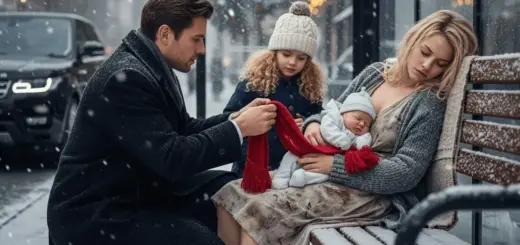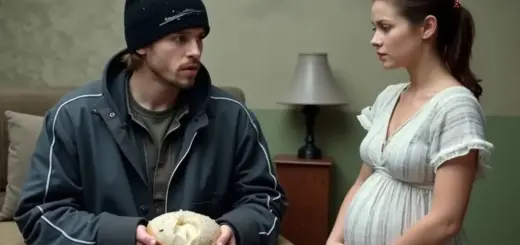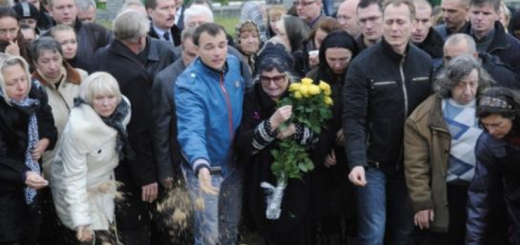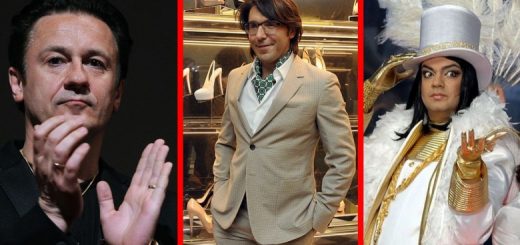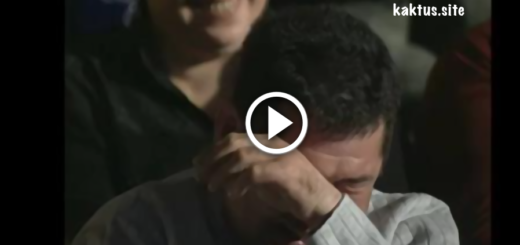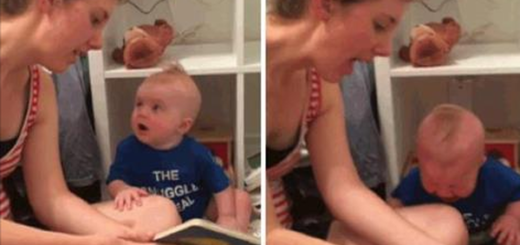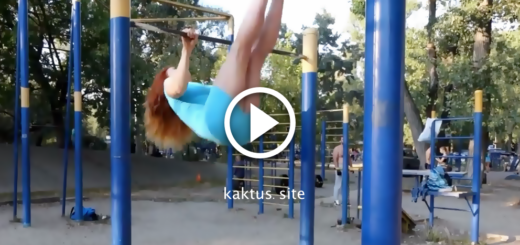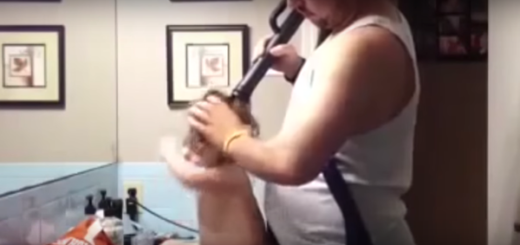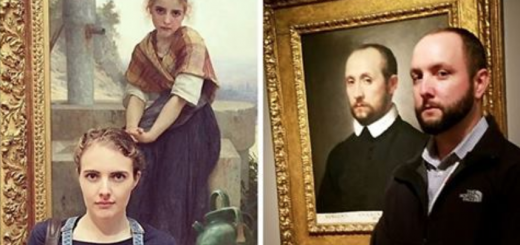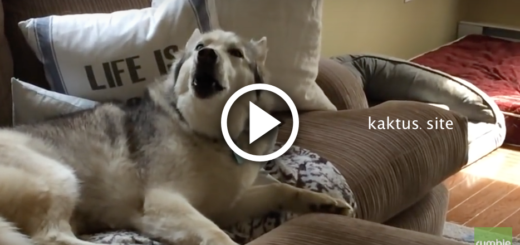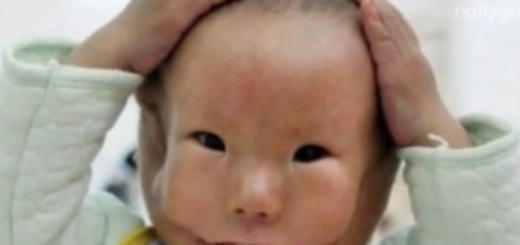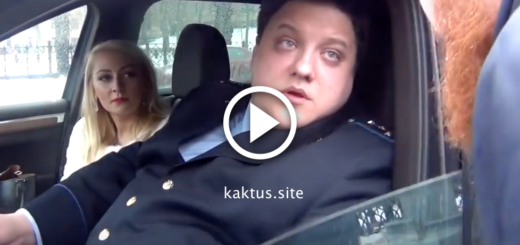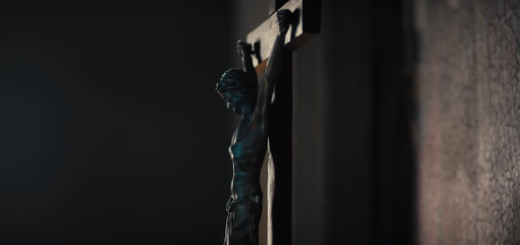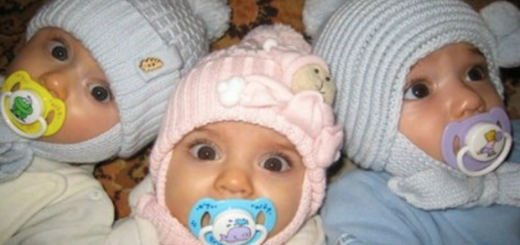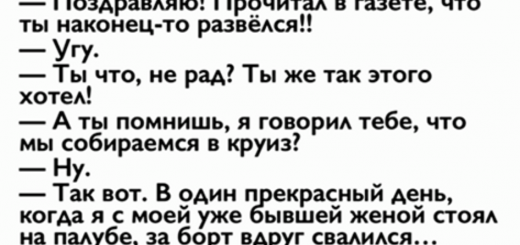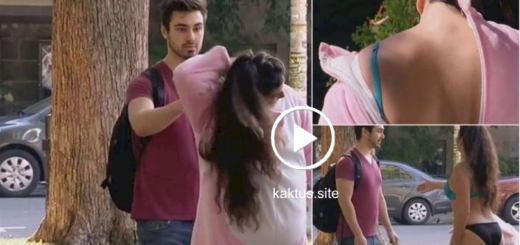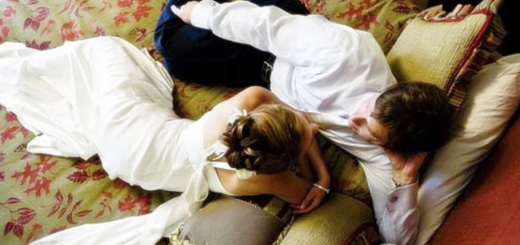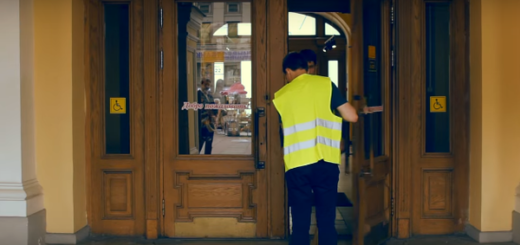At thirty-three, I, Nathan Brooks, thought I had my future mapped out. Until a few months ago, I was engaged to Emily Carter, a woman I genuinely believed was my forever. We met six years back at a Fourth of July barbecue, introduced by mutual friends in our small town of Cedar Grove, Pennsylvania. Emily’s warm laugh and sharp wit drew me in instantly, like we were two pieces of a puzzle snapping together. When I proposed last year, it felt like the stars had aligned—perfect timing, perfect person.
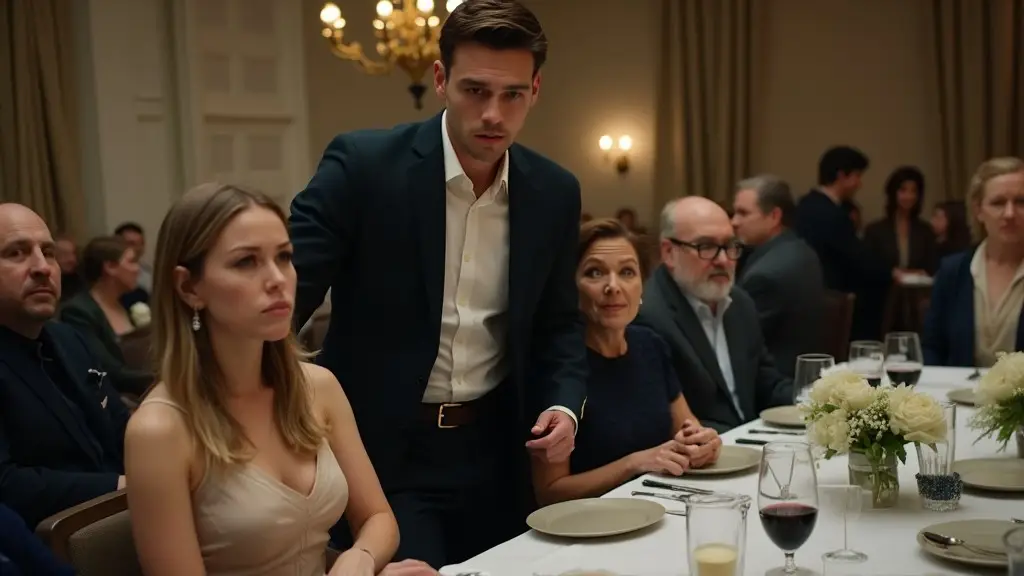
Marrying Emily meant embracing her family too. Her parents, Tom and Linda Harper, were larger-than-life characters, always commanding the room with their booming voices and strong opinions. At first, I chalked it up to their outgoing nature, but over time, their sense of entitlement seeped into every interaction, tainting even the smallest moments. Before I get into the mess that unfolded, let me tell you about my mom, Margaret.
Margaret Brooks was the kindest soul I’ve ever known. She passed away two years ago after a grueling three-year battle with cancer. Watching her fight with grace, always putting others before herself, changed me. She taught me what it means to be generous, to stand firm in your values, and to help without expecting anything in return. She was a pillar not just for me but for anyone lucky enough to know her, quietly stepping in to solve problems without making anyone feel small.
That included Emily’s family. Tom and Linda owe her more than they’ll ever admit, though you’d never guess it from how they speak of her now. When I first brought Emily to meet Mom, things seemed fine. Mom liked her, said she had a spark, and Emily was polite enough. But as our relationship deepened, cracks appeared. Emily started making little digs about Mom—calling her “overly helpful” or “too invested.” It stung, but I brushed it off, thinking she was just adjusting to our family dynamic.
Mom did so much for the Harpers. Years ago, their diner was teetering on the edge of bankruptcy. Mom co-signed a loan to keep them afloat when no bank would touch them. She didn’t stop there—she spent hours helping them reorganize their books, create a business plan, and turn things around. It worked; the diner thrived. Later, when their industrial fridge broke, threatening to shut them down, Mom covered the cost of a new one, no questions asked, even though she was starting to struggle with her own medical bills. That’s who she was—selfless to a fault.
Then there was Emily’s older brother, Jake. He was drowning in debt, unable to pay for his final semester of college. Mom stepped in, covering his tuition so he could graduate. “Education’s the one thing nobody can take from you,” she’d said. She didn’t just give money; she gave her time, helping with their bookkeeping, watching Jake’s kids so he could study. Tom, Linda, and Jake never truly thanked her. A quick “thanks” here and there, sure, but nothing that matched the weight of her generosity. Mom didn’t care—she wasn’t in it for praise.
When Mom passed, it shattered me. She was my anchor, and losing her left a void I still feel. Emily was there through the worst of it, or so I thought. In hindsight, her support was surface-level—platitudes like, “You need to let go, Nathan,” or “Your mom wouldn’t want you wallowing.” They weren’t comforting; they felt cold, dismissive. As the wedding approached, red flags multiplied. Emily shut down any mention of Mom in our ceremony plans. I wanted a small tribute in our vows—a moment to honor her—but Emily waved it off.
— It’ll just bring everyone down, Nathan. Weddings are for joy, not sadness.
I let it go to avoid a fight, but it gnawed at me. Then there were Tom and Linda’s comments, always laced with condescension, like they thought Emily was slumming it by choosing me. Tom once “joked” that Emily was “leveling up” by marrying someone from a “humble background.” Linda would sigh, “Love requires sacrifices, doesn’t it?” as if Emily was doing me a favor. I swallowed my pride for Emily’s sake, convincing myself things would settle after the wedding. I was dead wrong.
A month before the big day, the cracks became chasms. Tom and Linda offered to host the rehearsal dinner at an upscale restaurant they had connections with in downtown Cedar Grove. I thought it was a generous move, maybe their way of smoothing over the tension from the planning process.
— We’re pulling out all the stops, Nathan, Linda said, her voice brimming with pride. This dinner’s going to be the talk of the town.
— Only the best for our Emily, Tom added, emphasizing “our” like I was an afterthought.
It felt less like a gift and more like a stage for their egos, but I let them take charge, focusing on the wedding itself. Mistake number one. As the date neared, their true colors shone brighter. Every conversation carried a barb. When I tried to confirm the guest list, Linda dismissed me.
— We’ve got it handled, Nathan. Just show up and enjoy yourself.
The menu was another point of contention. Linda bragged about the “gourmet experience” they’d curated, throwing in jabs like, “Nothing like what you’re used to back home, Nathan.” My working-class roots were a constant target, and Emily never pushed back. Instead, she’d side with them.
— You’re overthinking it, Nathan. My parents know what they’re doing.
It wasn’t just the dinner. It was the way they made me feel like an outsider in my own engagement. They acted like I should be grateful Emily even looked my way, and she never once stood up for me. A week before the dinner, we were at their house, going over wedding details. Linda was in full dictator mode, obsessing over table settings and floral arrangements. I suggested simpler centerpieces, something Mom would’ve loved.
— Oh, Margaret had… unique taste, didn’t she? Linda said without looking up. But this is Emily’s day. Let’s keep it sophisticated.
Emily didn’t react, just kept scrolling on her phone. I wanted to snap back, but I bit my tongue, telling myself I was keeping the peace. I regret that now.
The rehearsal dinner arrived, and the air was thick with tension. Emily and I drove to the restaurant, a swanky place with crystal chandeliers and starched tablecloths. I tried to lighten the mood.
— Excited for tonight? I asked.
— It’s just a dinner, Nathan. Relax, she replied, eyes glued to her phone.
Tom and Linda were already holding court when we arrived, Tom greeting guests like a politician, Linda barking orders at the staff. The vibe felt more like a gala than a family event. As guests arrived, I noticed something off: the room was packed with Emily’s relatives and her parents’ business contacts. My side? Barely represented—just my dad, my sister, and a couple of friends. I pulled Emily aside.
— Why’s it mostly your family here? Where’s mine?
— Your family’s small, Nathan, she said, exasperated. We had to fill the seats. It’s not a big deal.
Not a big deal. Her go-to phrase for dismissing me. I mingled, but the feeling of being sidelined grew. The dinner wasn’t about us—it was Tom and Linda’s showcase. Then came the speeches. Tom went first, grabbing the mic like he was addressing a boardroom.
— Welcome, everyone, he boomed. Tonight, we celebrate the joining of two families—our Emily and, well, Nathan.
My name sounded like an afterthought. His speech was a masterclass in veiled insults, praising Emily’s ambition while implying I was there to “keep her grounded.” He smirked, and a few guests chuckled. I gripped my glass, my knuckles white. Then he said:
— Emily’s always aimed high. Nathan might not be what we pictured, but…
He trailed off, letting the silence do the damage. My dad’s jaw tightened across the table. Linda went next, her speech dripping with fake warmth.
— Emily’s our perfect girl, she said. She deserves the world, and it’s a good thing she’s patient, teaching Nathan so much already.
I nearly choked. Teaching me what? How to endure her family’s jabs? She turned to me, smiling.
— We’re thrilled to welcome you, Nathan. It’ll be nice to have someone who’s not afraid to roll up their sleeves, right?
Her relatives laughed. Emily smiled along, not a hint of discomfort. I waited for her to say something, anything, but she didn’t. Then Tom took the mic again.
— One last thing, he said, clinking his glass. Let’s honor someone who shaped Nathan—his mom, Margaret.
For a moment, I hoped for sincerity. Then he continued:
— Margaret was… something else. Always jumping into things, offering her two cents. Am I right?
Linda piped up:
— Oh, absolutely. She loved helping, even when we didn’t ask.
They laughed, turning my mom’s selflessness into a punchline. Tom went on:
— In all seriousness, Margaret was generous—maybe too generous, if I’m honest. We’ll keep her spirit alive at the wedding, but let’s hope Nathan doesn’t inherit her knack for taking over, right?
The room fell silent, but Tom and Linda were oblivious, grinning like they’d nailed the joke. Emily giggled, saying:
— Oh, Dad, stop.
That was it. My mom, who’d saved their business, paid for their fridge, funded Jake’s degree—she was reduced to a caricature. I couldn’t take it anymore. I stood, my chair scraping loudly.
— Are you serious right now? I said, my voice low but shaking.
The room froze. Tom raised an eyebrow, Linda’s smile faltered, and Emily whispered:
— Nathan, sit down.
— No, I said, glaring at Tom and Linda. You’ve spent the whole night mocking my mom, the woman who saved your diner, paid for your fridge, and put Jake through college. And now you’re acting like it’s a joke? You think that’s okay?
Tom leaned back, smirking.
— Relax, Nathan. It was just a bit of fun.
— Fun? I snapped. You called her meddling. You mocked her generosity like it was a flaw. That’s not fun—that’s disrespectful.
Linda tried to laugh it off.
— Nathan, don’t be so sensitive. Everyone knew Margaret liked to take charge.
— Take charge? I said, my voice rising. She saved your business. She paid for your fridge, your patio, Jake’s tuition. And this is how you repay her? By turning her into a punchline?
Tom stood, his face hardening.
— That’s enough, Nathan. If you’re going to throw a fit, maybe you’re not ready for marriage.
Emily tugged my sleeve.
— Nathan, let’s go outside and talk.
— No, I said, pulling away. Not until your parents understand how disgusting this is.
Linda sighed dramatically.
— You’re ruining the evening, Nathan. This is supposed to be a celebration.
— I’m ruining it? I said, incredulous. You ruined it the moment you decided to trash my mom’s memory. And Emily, you just sat there, laughing along.
Emily’s face flushed.
— I didn’t know they’d say all that!
— But you laughed, I shot back. You didn’t even try to stop them.
The room buzzed with whispers. Tom pointed to the door.
— If you’re so offended, Nathan, maybe you should leave.
I looked at my dad, my sister, my friends—all watching, waiting. I wasn’t going to let this slide.
— No, I said firmly. I’m not leaving until you understand what you’ve done. You act like my mom was some busybody, but without her, you wouldn’t have this restaurant connection. She helped because she cared, not for praise. Trashing her memory like it’s a joke? That’s not just disrespectful—it’s shameful.
The silence was deafening. Tom muttered:
— We didn’t mean it like that.
— Doesn’t matter how you meant it, I said. It’s how it came across. My mom deserved better, and so do I.
I grabbed my coat and stepped back.
— You want me to leave? Fine. But don’t expect me to come back.
My dad stood, followed by my sister and friends. Emily called after me:
— Nathan, wait!
I didn’t stop. Outside, my dad put a hand on my shoulder.
— You did right, son. Margaret would be proud.
I nodded, but pride wasn’t what I felt—just anger and betrayal. Emily’s failure to defend me, to honor my mom, showed me who she really was. But walking away didn’t feel like enough. They’d spin this, paint me as the villain. I couldn’t let that happen.
— I’m going back in, I told my dad.
— What? my sister said. You don’t owe them anything.
— I know, I said. But this isn’t finished.
My dad nodded.
— We’ve got your back, but if you need to do this alone, go for it.
I walked back inside, the room falling silent again. Emily stood, eyes wide.
— Nathan, what are you doing?
I ignored her and faced the room, my voice steady.
— Excuse me, everyone. I have something to say.
All eyes locked on me. Emily stood frozen, hands clasped. I took a deep breath.
— This wedding is off.
Gasps echoed, chairs scraped, and whispers erupted. Emily’s jaw dropped.
— Nathan, no, she whispered.
I held up a hand, silencing her.
— This isn’t just about tonight, I said. It’s about marrying into a family that doesn’t respect me, my mom, or the values I hold. I won’t spend my life being treated like this.
Tom scoffed.
— You’re making a mistake, kid. Throwing away something good over nothing.
— Nothing? I said, laughing bitterly. Disrespecting my mom is nothing? Treating me like I’m less than is nothing? No, Tom, the mistake would be tying myself to a family that doesn’t deserve me.
Linda’s voice shook.
— Nathan, let’s not decide this now. We can talk tomorrow.
— No, I said firmly. This is done.
I turned to Emily, tears streaming down her face.
— I’m sorry, Emily, but I can’t do this.
I walked out, her final plea echoing behind me:
— Nathan, please don’t.
I paused at the door, then turned back.
— I already did.
Walking away felt like shedding a heavy weight. The sting was there, but relief washed over me. The wedding, the disrespect, the suffocating feeling of being less than—it was over.
The next morning, my phone was flooded with messages. Emily’s were desperate apologies: “I’m sorry, Nathan. Please talk to me.” Tom’s were hostile: “You humiliated us. You’ll regret this.” Linda played the victim: “How could you do this to Emily?” I ignored them all. By afternoon, Emily showed up at my apartment, looking like she hadn’t slept, still in her dress from the night before.
— Nathan, can we talk? she said, voice trembling.
I leaned against the doorframe, arms crossed.
— What’s there to talk about, Emily? I said everything last night.
— I know you’re angry, she said, wiping her eyes. But we can fix this.
— You don’t get it, I said. This isn’t fixable.
— I was scared, okay? she said, voice cracking. I didn’t know what to do.
— Scared of what? I asked. Scared of standing up to your parents? Scared of defending me?
She had no answer, just tears. I waited for something to show she understood, but nothing came.
— Please, Nathan, she whispered. Don’t end it like this. I’ll make them apologize.
— It’s not just them, I said. It’s you. Last night showed me who you are, and I can’t unsee it. I deserve better.
Her face crumpled, but I closed the door.
Weeks later, I was sorting through Mom’s keepsake box—a wooden chest filled with her treasures: her favorite scarf, a pair of pearl earrings, and a silver locket passed down through generations, holding a photo of my grandmother. Mom gave it to me before she died, saying, “You’ll know who to give this to someday.” It was more than jewelry; it was her legacy.
But when I opened the box, the locket was gone. Panic hit. I tore through the box, checked every drawer, every shelf—nothing. Then it clicked. Emily had been in my apartment days after the breakup, dropping off the engagement ring. She’d asked to use the bathroom, and I hadn’t thought twice. My stomach twisted as I texted her:
— Did you take the locket from Mom’s box?
Her reply came minutes later:
— What are you talking about?
I wasn’t buying it.
— You know exactly what I mean. The locket’s gone, and you’re the only one who’s been here.
After a long pause, she texted back:
— I borrowed it to feel closer to you. I thought it would help.
Borrowed? My blood boiled. I called her.
— It’s not a big deal, Nathan, she said, defensive. I was going to give it back.
— Not a big deal? I snapped. That locket’s been in my family for generations. You stole it!
— I just wanted to feel connected to you, she said, voice trembling. I didn’t think you’d notice.
— Of course I’d notice! I shouted. You took something sacred without asking. Where is it?
— It’s at my parents’ house, she admitted, sobbing. I left it there for safekeeping.
— Safekeeping? I said, incredulous. You stole from my mom’s memory and left it at your parents’ house?
— I’m sorry, she whispered.
— Sorry doesn’t cut it, I said. I’m coming to get it.
An hour later, I was at Tom and Linda’s sprawling house. My anger had only grown. Linda answered the door, her smile vanishing when she saw me.
— Nathan, what’s this about? she said.
— I’m here for my mom’s locket, I said. Emily took it.
Linda’s face twisted in annoyance.
— She took it? Why would she do that?
I pushed past her. Emily came downstairs, holding the locket. Her eyes were red, but I didn’t care. I snatched it, checked it was the right one, and pocketed it.
— Nathan, wait, she said, desperate. I didn’t mean to upset you.
— You stole from me, Emily, I said. From my mom. That’s unforgivable.
Her face crumpled, but I turned and left, slamming the door. In the days that followed, I blocked her number, deleted her messages, and cut all ties with her family. Calling off the wedding was gut-wrenching, but this betrayal sealed it. I’d stood up for myself, for Mom, for what mattered. And for the first time in months, I felt peace.

